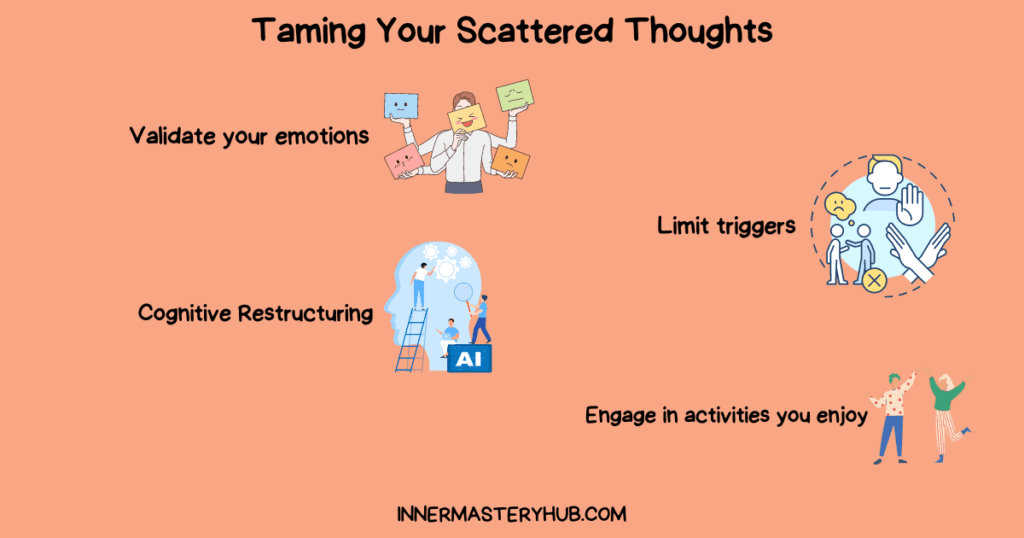How Knowledge Management Tools Can Transform Your Business Processes

In an age where information is as valuable as currency, equipping your organization with the means to manage this resource effectively is critical. Knowledge management tools serve as the cornerstones of intellectual capital stewardship, streamlining operations and cultivating a culture of shared intelligence.
These systems not only store critical data but also make it accessible, helping to break down silos and power decision-making. Uncover how these tools can transform your business processes.
Continue reading to discover how implementing knowledge management can transform your company’s approach to information management and employee collaboration.
Understanding Knowledge Management Tools and Their Role in Business
A group of people collaborating at a table in an office, discussing knowledge management tools. Knowledge management tools, such as RightAnswers or Panviva, help businesses store, organize, and share essential information.
These tools act as digital hubs for documents, procedures, and expertise, ensuring valuable insights aren’t lost over time. They also support smooth transitions during employee turnover and help meet compliance needs by keeping a clear record of information changes.
With knowledge management tools in place, employees can quickly find what they need without wasting time. These platforms promote a culture of autonomy and collaboration, offering easy-to-use search features and shared workspaces that keep teams informed and connected.
Streamlining Communication with Knowledge Management
Effective communication is crucial for business success, and knowledge management tools enhance it by offering a centralized source of truth. These tools align team members, reduce miscommunication, and streamline internal processes. Real-time collaboration through forums and discussion boards facilitates rapid problem-solving and informed decision-making.
Self-service features, such as FAQs and knowledge bases, reduce repetitive inquiries, freeing IT and support teams to handle more complex issues. Knowledge management systems also standardize internal communication by documenting protocols, promoting consistency across organizational channels. This structure ensures that vital information is accessible, accurate, and efficiently distributed throughout the business.

Enhancing Collaboration Across Departments Using Knowledge Tools
Collaboration in a distributed workforce thrives with effective knowledge management systems. These tools dismantle departmental silos, offering centralized platforms for cross-functional teams to share expertise and insights.
Features like collaborative document editing and shared digital workspaces enable employees from various departments to refine ideas collectively, transforming individual input into a broader organizational asset.
Social networking elements further support informal knowledge exchange, nurturing a culture of innovation and unity. These systems streamline onboarding by providing new hires with quick access to essential practices and values, enabling them to integrate into workflows more efficiently and independently.
Driving Innovation and Continuous Improvement Through Knowledge Sharing
A group of diverse professionals collaborating around a whiteboard, focused on driving innovation and knowledge sharing.
Knowledge management tools drive innovation by enabling the capture and sharing of ideas across an organization. They support collaborative thinking, helping businesses identify knowledge gaps and encourage the development of new solutions. By fostering a culture of collective intelligence, these tools create an environment where insights from diverse sources can merge to solve complex challenges.
They also promote continuous improvement by circulating lessons learned from both successes and failures. Their analytical features allow organizations to track the usage and effectiveness of shared knowledge. This data-driven approach helps shape strategic decisions and keeps innovation aligned with business goals.
Measuring the Impact of Knowledge Management Tools on Business Performance
Knowledge management tools significantly enhance business performance by improving key metrics, including response times, employee satisfaction, and project efficiency. These systems streamline access to information, enabling employees to work more efficiently and accurately, which in turn boosts productivity and reduces operational costs.
They also play a vital role in risk management by maintaining detailed documentation, ensuring regulatory compliance, and offering a reliable audit trail.
Knowledge management enhances customer service by providing staff with immediate access to essential information, leading to improved support and a stronger brand reputation. Businesses that utilize these tools often achieve measurable gains in both efficiency and customer satisfaction.
Overall, the integration of knowledge management tools within an organization’s ecosystem leads to transformative changes. By empowering employees with the right information at the right time, optimizing collaboration, and fueling innovation, businesses are well-positioned to thrive in an increasingly competitive landscape.
Measurement of success through performance metrics brings to light the tangible benefits that make these tools indispensable in today’s knowledge-driven economy.






